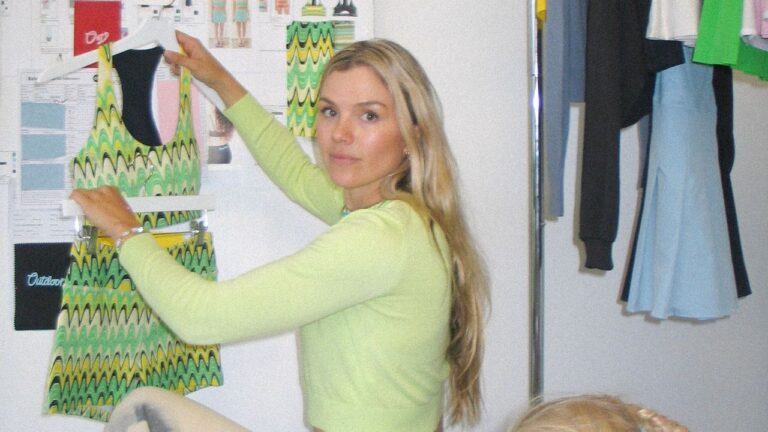It’s likely to at least catch the attention of current and former fans of the brand; Haney’s challenge now is to successfully introduce the OV aesthetic — heavily associated with millennials — to Gen Z women. To do so, she’s updated her go-to-market strategy. Outdoor Voices was part of the direct-to-consumer (DTC) retail gold rush of the 2010s, flush with VC cash, which she says eventually diluted her business to the point where she lost control. Gone are the days where a brand’s trajectory could be supercharged thanks to Facebook and Instagram arbitrage. Haney now has a new trick up her sleeve thanks to Try Your Best (or TYB), the community rewards platform she launched in 2022 during the Web3 boom, which raised $11 million last month from investors including Offline Ventures and Strobe Ventures.
The concept behind TYB is that brands can build fan channels and reward subscribers with early launches, discounts and more, while using the community to gauge new ideas, get feedback and build brand loyalty. Haney’s CBD brand Joggy was one of the first to launch on TYB, while other brands on the platform include Glossier, Rare Beauty and Poppi. Outdoor Voices will go live on TYB this week with the product launch, giving those that join early access on 4 August. “Really, TYB was a direct reaction to what worked and what didn’t at OV. It came from understanding the power of community,” she says. With all Outdoor Voices stores closed, the focus is on e-commerce, though Haney says they’re in talks with some select retail partners. Some collaborations that will hit on new categories are in line for spring.
It’s clear speaking to Haney that she’s back in her element. She says TYB, Joggy and Outdoor Voices are three pieces of the brand world she’s building. She has big ambitions, saying that she wants Outdoor Voices to be the next Patagonia (a brand more reflective of her current time spent between her hometown of Boulder, CO, and San Francisco). When she left in 2020, Outdoor Voices was at around $90 million in annual sales; the plan is to hit a new revenue high in the next 12 to 18 months. But she says she’s not thinking about growth targets so much as she is building something that lasts, and she says the partners that she has in place this time feel like ones she can trust, ones that she had time to vet and get to know before deciding to return. She’s stepping back in as a part owner of the company she started, which was a non-negotiable. “Ownership matters a lot to me,” Haney says. “How we fund the company, what the expectations are. That matters.”
What happened with her first run at Outdoor Voices feels present. While she initially says she’s “put a bow on those eight years, and I’m very kind and grateful to them”, she later addresses how difficult the period was. “I’m an optimistic person. I think I blocked out those years.” Haney is not the only female founder of her era that left her company in a blaze of allegations of mismanagement and workplace toxicity. Is it vindicating to return?
“From a founder perspective, challenges are par for the course,” she says. “But I don’t think that era where there were so many takedowns was good for women wanting to be founders. So at the end of the day, I couldn’t be more excited for this to be a model to show what’s possible, and I hope that there’s a wake of new interest from young women, to see what’s possible in the brand and business-building world.”
Comments, questions or feedback? Email us at feedback@voguebusiness.com.
More from this author:
Is Daydream’s AI platform the answer to fashion’s discovery problem?
How Printemps won over New York
How to launch a fashion brand in 2025


